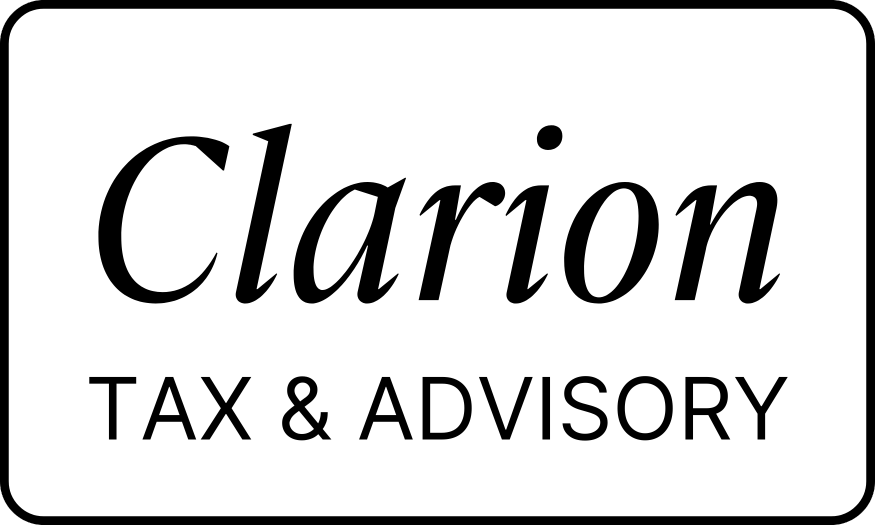Legal Entity vs. Tax Entity: What’s the difference for your small business?

When you’re starting a business — or leveling up from hobby to real income — one of the first big questions you’ll face is “What entity should I choose?”
But here’s what trips up so many creators, freelancers, and small business owners: your legal entity and your tax entity aren’t always the same thing.
Let’s break down what these mean, how they work together, and why getting it right matters for your wallet — and your peace of mind.
What Does “Liability” Really Mean?
Before you choose an entity, it’s crucial to understand liability.
In simple terms, liability means who’s legally responsible if your business gets sued or owes money.
- If you have no liability protection (like a sole proprietorship), your personal assets — your savings, your car, maybe even your house — could be at risk if your business gets into trouble.
- If you have limited liability protection (like an LLC or Corporation), your personal assets are generally shielded — meaning only your business assets are on the line.
Think of an LLC or Corporation as a legal fence around your business.
Inside the fence: your business money, equipment, and operations.
Outside the fence: your personal stuff stays safe.
How Defaults Work: What If You Do Nothing?
Here’s a simple truth: many business owners don’t realize they’ve picked an entity — but the IRS and your state see you as something by default.
✅ One owner, no formal setup?
You’re automatically a sole proprietor for both legal and tax purposes. You report all income and expenses on Schedule C of your personal tax return.
✅ Two or more owners, no LLC or Corp?
You’re automatically treated as a general partnership for tax purposes (Form 1065).
Heads up: If you’re married and live in a community property state, you might be able to file as a sole proprietorship instead — but talk to your tax pro first.
✅ Form an LLC?
Congrats — you now have legal liability protection.
- If you’re solo, the IRS still ignores the LLC for tax purposes (it’s a “disregarded entity”).
- If you have multiple members, your LLC defaults to a partnership for taxes.
You can elect to change your tax status later — but these are the starting points.
Legal Entity vs. Tax Entity: How They Work Together
Your legal entity is your structure in the eyes of your state — it sets up your liability protection and ownership rules.
Your tax entity is how the IRS sees your business — it determines which forms you file, how you pay yourself, and how your income is taxed.
✅ Example:
Ava, a freelance designer, forms an LLC. Legally, she now has liability protection. But by default, the IRS still taxes her as a sole proprietor (Schedule C). Once Ava’s income grows, she might elect to have her LLC taxed as an S-Corp to save on self-employment tax. The legal entity stays the same — the tax entity changes.
Pros & Cons of Common Legal Entities
Sole Proprietorship
- Pros: Simplest, cheapest to start; no formal registration required.
- Cons: No liability protection; you’re personally responsible for all debts and obligations; full self-employment tax on profits.
- Liability Protection: ❌ No
LLC (or PLLC)
- Pros: Liability protection for your personal assets; simple to maintain; flexible management structure.
- Cons: May have small annual state fees; by default, still pays full self-employment tax on profits.
- Liability Protection: ✅ Yes
Partnership (Multi-Member LLC)
- Pros: Flexible for multiple owners; easy to split profits and losses.
- Cons: Requires a separate partnership tax return; each partner reports income individually.
- Liability Protection: ✅ Yes
Corporation (Inc., PC/PA)
- Pros: Strong liability protection; good structure if you plan to raise investors or issue stock.
- Cons: More complex to set up and run; possible double taxation if you choose a C-Corp.
- Liability Protection: ✅ Yes
Pros & Cons of Common Tax Entities
Sole Proprietorship (Schedule C)
- Pros: Easiest to file; no separate business tax return needed.
- Cons: Full self-employment tax on all profits; no liability protection unless you’re an LLC.
- Common For: Freelancers, side hustlers, solo creators just starting out.
Partnership (Form 1065)
- Pros: Flexible for multiple owners; straightforward profit-sharing.
- Cons: Partners pay tax on their share of profits whether or not cash is distributed; requires a partnership tax return.
- Common For: Small partnerships, creative collabs, co-owned businesses.
S-Corporation (Form 1120-S)
- Pros: Can reduce self-employment tax if done properly; profits after a reasonable salary can be distributed as dividends.
- Cons: Must run payroll and do extra admin; IRS rules must be followed closely.
- Common For: Solo business owners with profits above ~$60K/year.
C-Corporation (Form 1120)
- Pros: Flat 21% corporate tax rate; attractive for raising investors or scaling fast; potential 1202 stock gain exclusion for startups.
- Cons: Double taxation — profits are taxed at the corporate level, then again if distributed as dividends; more complex compliance.
- Common For: Startups, businesses planning rapid growth or VC funding.
Final Takeaway: Get Clear Early
There’s no one “perfect” structure — only what’s best for your goals, risk tolerance, and income.
When in doubt, ask:
- How much liability protection do I need?
- What’s my income goal this year and next?
- Am I ready for the bookkeeping and payroll that come with an S-Corp or Corp?
If you’re not sure, don’t guess. A quick chat with a qualified tax pro can save you thousands and spare you from messy surprises later.
Disclaimer: The information provided in this blog post is for informational and educational purposes only and should not be construed as personalized legal, accounting, or tax advice. No client relationship is formed by reading this content alone. While every effort is made to ensure accuracy, the information may not apply to your specific circumstances. Please consult a qualified professional for advice tailored to your situation. Ryan Almusawi is admitted to practice before the IRS as an Enrolled Agent. Ryan Almusawi, LLC. d/b/a Clarion Tax & Advisory is not a CPA firm and does not provide attestation or assurance services.
